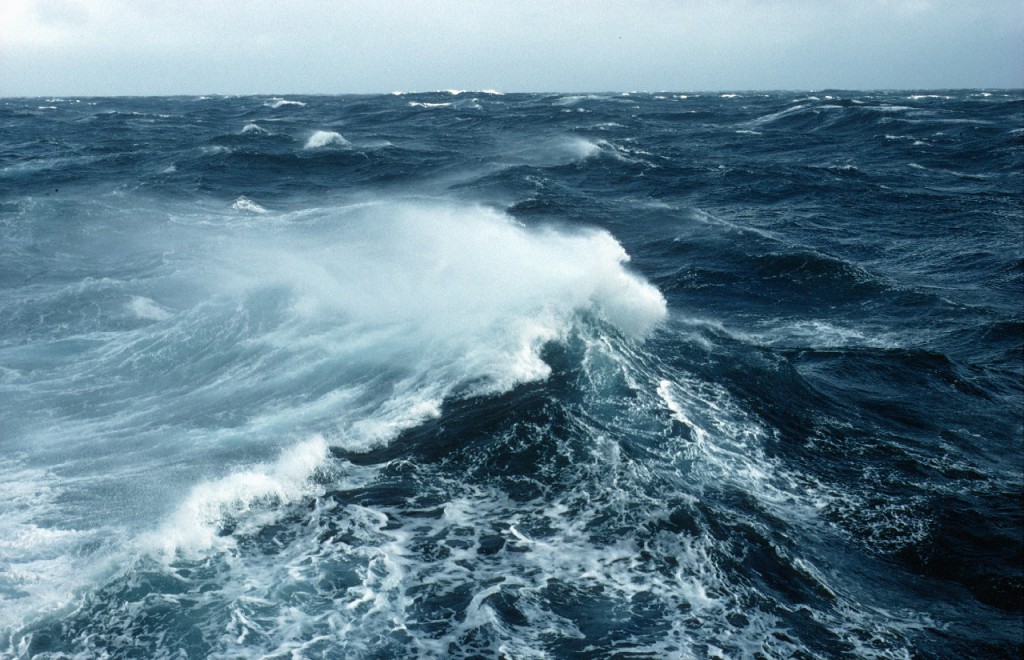The Southern Ocean: new insights into circulation, carbon and climate
A special issue of the Philosophical Transactions of the Royal Society A has been published today (Monday 2 June) which brings together a collection of papers on many of the unresolved issues relating to the Southern Ocean. Professor Michael Meredith from the British Antarctic Survey was a guest editor on the issue; ‘The Southern Ocean: new insights into circulation, carbon and climate‘.

The research includes: Why greenhouse gases and the ozone holes are melting the Arctic sea ice but are having a cooling effect in some parts of Antarctica, and how dust, which provides iron and essential nutrients to the ocean, might have been the cause of increased biological productivity in the southern Atlantic Ocean during the last ice age.
The Southern Ocean has earned a reputation as the roughest and most challenging on Earth and retains an aura of mystery from the time of early European explorers. Although no longer a life-threatening adventure, to modern oceanographers the region is still full of mystery and unanswered questions. It is central to the climate of the planet, but experts still struggle to understand its dynamics.
The special issue arose from a two-day Theo Murphy scientific meeting at the Royal Society’s Kavli Centre in July 2013. Co-organised by Professor Meredith, the meeting brought together the world’s experts on Southern Ocean circulation and climate to review recent progress and stimulate critical thought about future priorities.
The following papers were led by authors at the British Antarctic Survey (BAS) – for further information relating to these papers please contact the lead authors or the BAS Press Office.
Dense waters of the Weddell and Scotia Seas: recent changes in properties and circulation
The dense waters that form around Antarctica spread northward along the ocean abyss, and exert a significant control on sea level rise and planetary climate. These waters, and their supply to the global ocean, are changing, but the causes and impacts of these changes are not well established. This work synthesizes recent progress that has produced new insight into the mechanisms responsible for such changes, and their impacts. Important directions for future research effort are highlighted.
Lead author: Prof Mike Meredith, British Antarctic Survey, mmm@bas.ac.uk
Freshwater fluxes in the Weddell Gyre: Results from δ18O
A freshwater budget of the Weddell Gyre in the Southern Ocean – a critically important region in the global climate system – has been calculated for the first time using measurements of oxygen isotopes (δ18O) in seawater. It shows that set against regional atmospheric warming and documented changes in the hydrological cycle, the region is currently in approximate balance, although sensitive to changing ocean circulation patterns. It also highlights its importance as a location of substantial net sea-ice production, recently observed to be increasing and a key process associated with deep water formation.
Lead author: Dr Peter Brown, British Antarctic Survey and University of East Anglia, p.j.brown@uea.ac.uk
The Southern Ocean is an important part of the global climate system, but its complex coupled nature makes both its present state and response to projected future climate forcing difficult to model. This paper considers the representation of the Southern Ocean in the latest state-of-the-art climate models, as used by the Intergovernmental Panel on Climate Change (IPCC) assessments. Strengths and weaknesses are identified in the depiction of ocean properties, circulation and sea ice, and areas of improvement that are required for future model simulations are highlighted.
Author: Dr. Andrew Meijers, British Antarctic Survey, andmei@bas.ac.uk
Another paper included contributions from BAS scientists, Sophie Fielding and Damien Guihen
Ocean processes at the Antarctic continental slope
Antarctica is remote and inaccessible, but crucially important for global climate and for its role in ecosystems and carbon sequestration. Our research discusses how well climate models can simulate this region, and new observing techniques to determine the small scale processes that have a global impact. Contact: Dr Karen Heywood, UEA, K.Heywood@uea.ac.uk
Press office contacts:
- British Antarctic Survey: Rachel Law, tel: +44 (0)1223 221437; mobile: +44 (0)7740 822 229; email: raclaw@bas.ac.uk
- The Royal Society: Victoria Druce, tel +44 (0)20 7451 2510; email: victoria.druce@royalsociety.org
